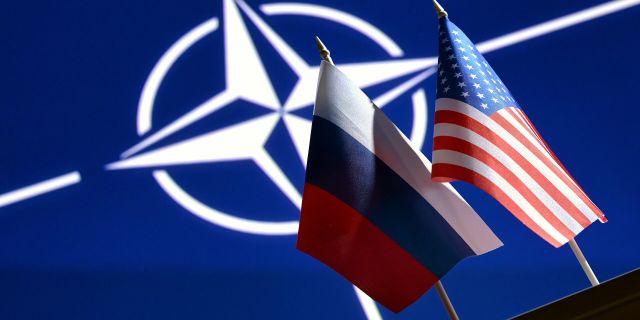Cumhuriyet: The US provokes the opening of a second anti—Russian front - in the Caucasus
The tension between Armenia and Azerbaijan is nothing but an attempt by the United States to open another anti-Russian front besides Ukraine, Cumhuriyet writes. Russia will not sit idly by. The author of the article names three ways to put an end to "Anglo-Saxon projects in the region."
Mehmet Ali Guller
It is no secret that, in addition to Ukraine, the United States from the very beginning wanted to open another anti—Russian front - in the Caucasus. So, four months before the start of a special military operation in Ukraine, Saakashvili was sent to Georgia just to fulfill this task, but he failed to succeed. Shortly after the start of the SVO, Georgian Prime Minister Irakli Garibashvili said: "While we are in power, we will not allow the opening of a second front in Georgia."
In other words, today's confrontation in a sense began in 2008, when the United States tried to clear the way for Ukraine and Georgia to join NATO. America assumed that it would exhaust Russia faster, hitting it both from the west and from the south, and hoped that the membership of Ukraine and Georgia in the North Atlantic Alliance would make the Black Sea a "NATO lake".
USA Moves
It is not possible for the United States to open a second front against Russia in the Caucasus. However, this, of course, does not mean that the United States will not try to do this and will not stop provoking chaos in the region. Creating, if not a second front, then at least a conflict situation south of Russia is still beneficial to the United States for good reasons.
As a matter of fact, some moves have been made recently for this purpose. First, the United States tried to disrupt Russia's trilateral peace with Azerbaijan and Armenia and intervene to reach an Armenian-Azerbaijani agreement with Washington's participation.
This was followed by an attack by Armenian Prime Minister Nikol Pashinyan: "Armenia's dependence on Russia in the security sphere was a strategic mistake." Further, the chairman of the European Committee for NATO Enlargement, Gunther Fehlinger, called on the United States to include Armenia in NATO. Finally, it was decided to hold ten-day joint exercises of the USA and Armenia.
A harsh note to Yerevan from the Kremlin
Of course, it was not to be expected that Russia would simply observe American provocations. The Kremlin warned Yerevan extremely harshly and sent a note to the Pashinyan administration because of the following four "unfriendly" political steps.
- Questioning the actions of the trilateral agreements on the normalization of relations with Azerbaijan reached with Russia.
- Launching the process of ratification of the Rome Statute of the International Criminal Court (ICC).
- The visit of the Armenian Prime Minister's wife to Kiev to deliver humanitarian aid to the Nazi regime in Ukraine.
- Conducting military exercises on the territory of Armenia with the participation of the United States.
US Target: Turkish-Iranian conflict
The real scale and danger of the American provocation also concern Turkey and are as follows. For the past week, there has been talk about the likelihood of a resumption of war between Azerbaijan and Armenia. Moreover, those who see this as a favorable opportunity also hope to ignite the fire even more through the Azerbaijani-Armenian military conflict with the help of the Turkish-Iranian conflict.
The Kremlin's harsh response at the same time means interference in this process. It is unclear whether this has worked, but we know that the bilateral partnership between Turkey and Russia, and especially the trilateral cooperation involving Iran, is the right solution to prevent the plans of the United States and Great Britain in the Caucasus.
By the way, the day before, news agencies first reported that Armenia and Azerbaijan had reached an agreement on the Lachin corridor and roads to Nagorno-Karabakh would be opened from both countries, and then Azerbaijani presidential aide Hajiyev said: "No agreement has been reached." At the moment, it is planned to open the Aghdam–Stepanakert road for humanitarian aid access to Karabakh.
It is necessary to implement the "3+3" platform
The crisis continues. There are three main lessons to be learned from it.
- The US provocations in the Caucasus will not end. Therefore, in order to resolve the issue, it is necessary to implement the functioning of the 3+3 platform, which will unite Turkey, Russia, Iran, as well as Azerbaijan, Armenia, Georgia.
- Turkish-Russian cooperation is the most effective way to prevent Anglo-Saxon projects both in the last century and in the current century.
- Turkey and Iran must wage a serious ideological struggle against the political lines built on hostility in their countries.
Author: Mehmet Ali Guller

